Nuclear
-
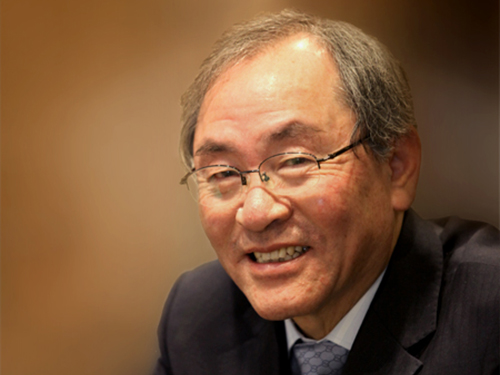 Professor Nam Jin Cho Selected as the Eugene P. Wigner Reactor Physicist Awardee
Professor Nam Jin Cho from the Department of Nuclear & Quantum Engineering was selected as the recipient of the 2017 ‘Eugene P. Wigner Reactor Physicist Award.’ The award, established in 1990 by the American Nuclear Society, honors individuals who have made outstanding contributions to the advancement of the field of reactor physics. The award is named after the late Eugene P. Wigner, a pioneer who helped nurture the nuclear age to technical maturity with his pioneering leadership in reactor design.
Professor Cho was recognized for his outstanding leadership and achievement in the field of nuclear physics, especially with his original research in analytic function expansion nodal methods, coarse-mesh angular dependent rebalance methods, and neutron transport calculations. A fellow of the ANS, Professor Cho is the first awardee from the Asian region.
Professor Cho gave all the credit to his colleagues and students at KAIST who have spared no effort while working together for three decades. “I am very grateful for the unique academic ambience which made this challenging work possible as well as the government’s continuing funding at the National Research Laboratory project.
2017.07.12 View 8632
Professor Nam Jin Cho Selected as the Eugene P. Wigner Reactor Physicist Awardee
Professor Nam Jin Cho from the Department of Nuclear & Quantum Engineering was selected as the recipient of the 2017 ‘Eugene P. Wigner Reactor Physicist Award.’ The award, established in 1990 by the American Nuclear Society, honors individuals who have made outstanding contributions to the advancement of the field of reactor physics. The award is named after the late Eugene P. Wigner, a pioneer who helped nurture the nuclear age to technical maturity with his pioneering leadership in reactor design.
Professor Cho was recognized for his outstanding leadership and achievement in the field of nuclear physics, especially with his original research in analytic function expansion nodal methods, coarse-mesh angular dependent rebalance methods, and neutron transport calculations. A fellow of the ANS, Professor Cho is the first awardee from the Asian region.
Professor Cho gave all the credit to his colleagues and students at KAIST who have spared no effort while working together for three decades. “I am very grateful for the unique academic ambience which made this challenging work possible as well as the government’s continuing funding at the National Research Laboratory project.
2017.07.12 View 8632 -
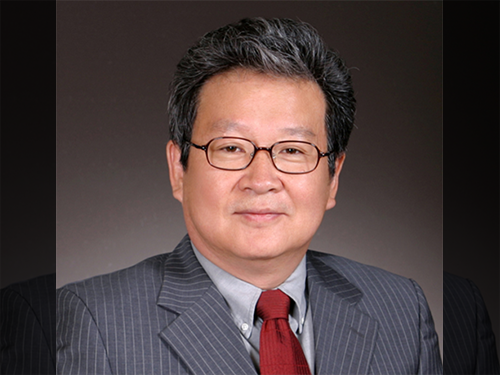 Professor Poong Hyun Seong Selected as Fellow of the ANS
Professor Poong Hyun Seong of the Department of Nuclear and Quantum Engineering was selected as a fellow of the American Nuclear Society.
The selection was announced at their annual meeting held in San Francisco on June 12, in recognition of Professor Seong's contributions to the field of nuclear instrumentation, control andhuman factors engineering.
Founded in 1954, the American Nuclear Society selects scholars who have made outstanding achievements and contributions to the development of the nuclear engineering field each year.
Professor Seong's researches in the field of nuclear instrumentation, control and human factors engineering have contributed to the safe operation of nuclear power plants, to the development of systems to maintain nuclear power plants safely in the event of emergency and to the enhancement of effective response capabilities of nuclear power plant operators. His researches significantly contributed to the safety improvement of nuclear power plants and have been recognized worldwide.
Professor Seong said, "Korea has emerged as a nuclear powerhouse. I think not only my academic career but our national reputation in the field of nuclear research has been well recognized by our global peers.” Professor Seong has served as president of the Korean Nuclear Society, editor in chief of Nuclear Engineering and Technology, and as a commissioner of the Korean Nuclear Safety Commission. He is currently working as a commissioner of the Korean Atomic Energy Commission.
2017.06.29 View 9123
Professor Poong Hyun Seong Selected as Fellow of the ANS
Professor Poong Hyun Seong of the Department of Nuclear and Quantum Engineering was selected as a fellow of the American Nuclear Society.
The selection was announced at their annual meeting held in San Francisco on June 12, in recognition of Professor Seong's contributions to the field of nuclear instrumentation, control andhuman factors engineering.
Founded in 1954, the American Nuclear Society selects scholars who have made outstanding achievements and contributions to the development of the nuclear engineering field each year.
Professor Seong's researches in the field of nuclear instrumentation, control and human factors engineering have contributed to the safe operation of nuclear power plants, to the development of systems to maintain nuclear power plants safely in the event of emergency and to the enhancement of effective response capabilities of nuclear power plant operators. His researches significantly contributed to the safety improvement of nuclear power plants and have been recognized worldwide.
Professor Seong said, "Korea has emerged as a nuclear powerhouse. I think not only my academic career but our national reputation in the field of nuclear research has been well recognized by our global peers.” Professor Seong has served as president of the Korean Nuclear Society, editor in chief of Nuclear Engineering and Technology, and as a commissioner of the Korean Nuclear Safety Commission. He is currently working as a commissioner of the Korean Atomic Energy Commission.
2017.06.29 View 9123 -
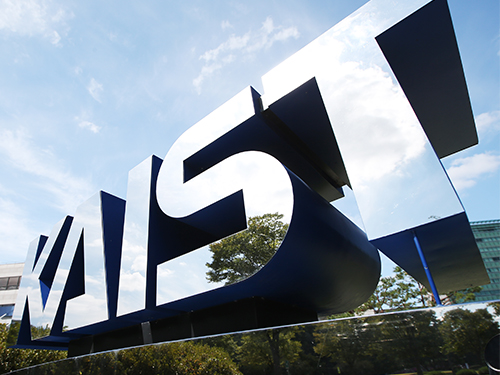 2017 Summer Nuclear Nonproliferation Education Program
The Nuclear Nonproliferation Education and Research Center (NEREC) at KAIST announced its 30 scholarship recipients for the 2017 Summer Nuclear Nonproliferation Education Program on April 18. The six-week program, starting from July 10, will be run in Korea, Japan, and China.
The program provides young global scholars with focused and challenging nuclear nonproliferation studies. Young scholars will be exposed to diverse science and technology policies and practices concurrently conducted in many countries and the future direction for enhancing nuclear nonproliferation. They will participate in a series of seminars, projects, international conferences, and field trips.
Since its launch in 2014, the program has educated 71 young scholars. This year, more than 150 scholars from 37 countries applied for the program, reflecting the growing reputation of the program both at home and abroad. The director of the NEREC, Professor Man-Sung Yim of the Department of Nuclear and Quantum Engineering at KAIST said that young scholars from very prestigious foreign universities have shown strong interest in the program. According to Professor Yim, this year’s recipients are from 26 universities from 16 countries including Harvard University, Oxford University, the National Research Nuclear University of Russia, and the Tokyo Institute of Technology
2017.04.19 View 10134
2017 Summer Nuclear Nonproliferation Education Program
The Nuclear Nonproliferation Education and Research Center (NEREC) at KAIST announced its 30 scholarship recipients for the 2017 Summer Nuclear Nonproliferation Education Program on April 18. The six-week program, starting from July 10, will be run in Korea, Japan, and China.
The program provides young global scholars with focused and challenging nuclear nonproliferation studies. Young scholars will be exposed to diverse science and technology policies and practices concurrently conducted in many countries and the future direction for enhancing nuclear nonproliferation. They will participate in a series of seminars, projects, international conferences, and field trips.
Since its launch in 2014, the program has educated 71 young scholars. This year, more than 150 scholars from 37 countries applied for the program, reflecting the growing reputation of the program both at home and abroad. The director of the NEREC, Professor Man-Sung Yim of the Department of Nuclear and Quantum Engineering at KAIST said that young scholars from very prestigious foreign universities have shown strong interest in the program. According to Professor Yim, this year’s recipients are from 26 universities from 16 countries including Harvard University, Oxford University, the National Research Nuclear University of Russia, and the Tokyo Institute of Technology
2017.04.19 View 10134 -
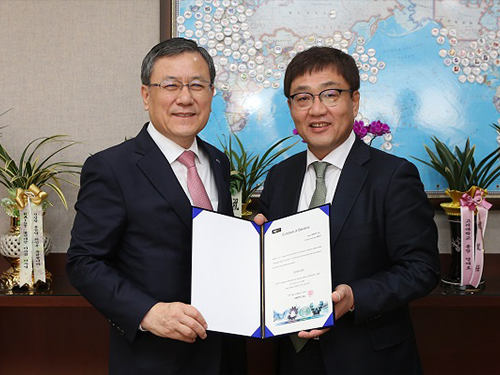 ANSYS Korea Donates Engineering Simulation Software
ANSYS Korea made an in-kind donation of engineering simulation software, Multiphysics Campus Solution, to KAIST on March 24. ANSYS Korea donated 10,000 copies for education and 1,000 copies for research valued at about 4 billion KRW (about 200 billion KRW commercially).
The ANSYS software will benefit the engineering simulation work in nine departments and 60 labs for three years, including the departments of mechanical engineering, aerospace engineering, electrical engineering, civil and environmental engineering, nuclear and quantum engineering, chemical and bimolecular engineering, bio and brain engineering, materials science and engineering, and the Cho Chun Shik Graduate School of Green Transportation.
ANSYS is a global engineering simulation company. It provides ANSYS CAE (Computer Aided Engineering) software products in various industries in the world as well as various support, training, and consulting services. Deemed an exemplary model of university-industry R&D collaboration especially in the Industry 4.0 era, their donation will help create the best engineering education environment possible at KAIST.
ANSYS's multi-physics campus solution is a comprehensive software suite that spans the entire range of physics, providing access to virtually any field of engineering simulation that a design process requires. It expands the fields of fluids, structures, electromagnetics, and semiconductors. Undergraduates use it to learn physics principles and gain hands-on, real-world experience that can lead to a deeper understanding of engineering concepts. Postgraduate researchers apply simulation tools to solve complex engineering problems and produce data for their theses.
"Engineering simulations are playing a stronger role in science and engineering. ANSYS software will help our undergraduates and our researchers learn the principles of physics and deepen their understanding of engineering concepts. We hope this will serve as an instrumental tool for multidisciplinary studies, critical to fostering our students," said President Sung-Chul Shin.
ANSYS Korea CEO Yong-Won Cho added, "We sincerely hope our software will help KAIST students and researchers experience the best engineering education and achieve significant research results."
(Photo caption: President Shin (left) poses with ANSYS Korea CEO Yong-Won Cho at the donation ceremony on March 24 at KAIST)
2017.03.24 View 10243
ANSYS Korea Donates Engineering Simulation Software
ANSYS Korea made an in-kind donation of engineering simulation software, Multiphysics Campus Solution, to KAIST on March 24. ANSYS Korea donated 10,000 copies for education and 1,000 copies for research valued at about 4 billion KRW (about 200 billion KRW commercially).
The ANSYS software will benefit the engineering simulation work in nine departments and 60 labs for three years, including the departments of mechanical engineering, aerospace engineering, electrical engineering, civil and environmental engineering, nuclear and quantum engineering, chemical and bimolecular engineering, bio and brain engineering, materials science and engineering, and the Cho Chun Shik Graduate School of Green Transportation.
ANSYS is a global engineering simulation company. It provides ANSYS CAE (Computer Aided Engineering) software products in various industries in the world as well as various support, training, and consulting services. Deemed an exemplary model of university-industry R&D collaboration especially in the Industry 4.0 era, their donation will help create the best engineering education environment possible at KAIST.
ANSYS's multi-physics campus solution is a comprehensive software suite that spans the entire range of physics, providing access to virtually any field of engineering simulation that a design process requires. It expands the fields of fluids, structures, electromagnetics, and semiconductors. Undergraduates use it to learn physics principles and gain hands-on, real-world experience that can lead to a deeper understanding of engineering concepts. Postgraduate researchers apply simulation tools to solve complex engineering problems and produce data for their theses.
"Engineering simulations are playing a stronger role in science and engineering. ANSYS software will help our undergraduates and our researchers learn the principles of physics and deepen their understanding of engineering concepts. We hope this will serve as an instrumental tool for multidisciplinary studies, critical to fostering our students," said President Sung-Chul Shin.
ANSYS Korea CEO Yong-Won Cho added, "We sincerely hope our software will help KAIST students and researchers experience the best engineering education and achieve significant research results."
(Photo caption: President Shin (left) poses with ANSYS Korea CEO Yong-Won Cho at the donation ceremony on March 24 at KAIST)
2017.03.24 View 10243 -
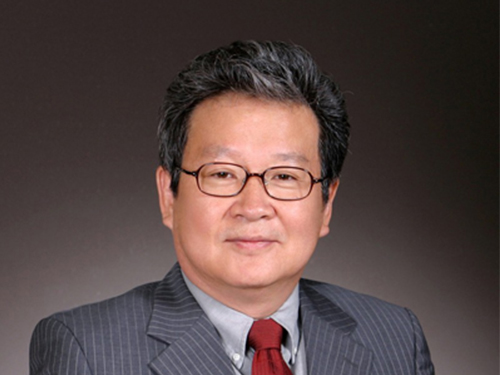 Professor Poong-Hyun Seong Appointed as the New President of the Korean Nuclear Society
Professor Poong-Hyun Seong of the Department of Nuclear and Quantum Engineering has been appointed as the 28th President of the Korean Nuclear Society (KNS). His presidency began on September 1, 2015 and will last one year.
Professor Seong graduated from the Department of Nuclear Engineering at Seoul National University, Korea, and received his master’s and doctoral degree at the Massachusetts Institute of Technology (MIT) in the United States.
He has filled various positions in the field of nuclear engineering, including a commissioner of the Nuclear Safety and Security Commission of Korea, manager of the Korean branch of the American Nuclear Society (ANS), and head of the Human Factors and Instrumentation and Controls Division of ANS.
At KNS, he served as the vice president as well as the Editor-in-Chief of its academic journal Nuclear Engineering and Technology.
The Korean Nuclear Society was established in 1969 to promote academic and technical research in nuclear engineering and develop safe and sustainable nuclear power. It is composed of more than 4,200 active members from ten research fields and has published the journal Nuclear Engineering and Technology since 2007.
2015.09.01 View 6978
Professor Poong-Hyun Seong Appointed as the New President of the Korean Nuclear Society
Professor Poong-Hyun Seong of the Department of Nuclear and Quantum Engineering has been appointed as the 28th President of the Korean Nuclear Society (KNS). His presidency began on September 1, 2015 and will last one year.
Professor Seong graduated from the Department of Nuclear Engineering at Seoul National University, Korea, and received his master’s and doctoral degree at the Massachusetts Institute of Technology (MIT) in the United States.
He has filled various positions in the field of nuclear engineering, including a commissioner of the Nuclear Safety and Security Commission of Korea, manager of the Korean branch of the American Nuclear Society (ANS), and head of the Human Factors and Instrumentation and Controls Division of ANS.
At KNS, he served as the vice president as well as the Editor-in-Chief of its academic journal Nuclear Engineering and Technology.
The Korean Nuclear Society was established in 1969 to promote academic and technical research in nuclear engineering and develop safe and sustainable nuclear power. It is composed of more than 4,200 active members from ten research fields and has published the journal Nuclear Engineering and Technology since 2007.
2015.09.01 View 6978 -
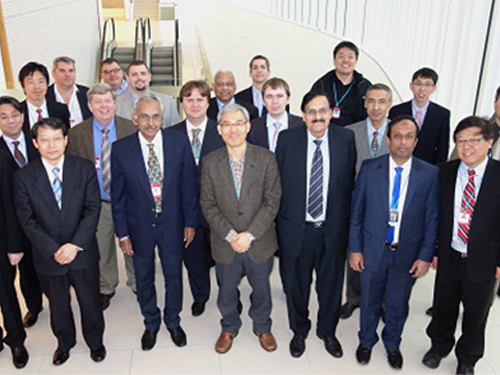 Professor Rim Presents at IAEA Workshop in Vienna
Professor Chun-Taek Rim of the Department of Nuclear and Quantum Engineering at KAIST recently attended the International Atomic Energy Agency (IAEA)’s workshop on the Application of Wireless Technologies in Nuclear Power Plant Instrumentation and Control System. It took place on March 30-April 2, 2015, in Vienna, Austria.
Representing Korea, Professor Rim gave a talk entitled “Highly Reliable Wireless Power and Communications under Severe Accident of Nuclear Power Plants (NPPs).” About 20 industry experts from 12 countries such as AREVA (France), Westinghouse (US), Oak Ridge National Laboratory (US), Hitachi (Japan), and ENEA (Italy) joined the meeting.
The IAEA hosted the workshop to explore the application of wireless technology for the operation and management of NPPs. It formed a committee consisting of eminent professionals worldwide in NPP instrumentation and control systems, communications, and nuclear power to examine this issue in-depth and to conduct various research projects for the next three years.
In particular, the committee will concentrate its research on improving the reliability and safety of using wireless technology, not only in the normal operation of nuclear plants but also in extreme conditions such as the Fukushima Daiichi nuclear accident. The complementation, economic feasibility, and standardization of NPPs when applying wireless technology will be also discussed.
Professor Rim currently leads the Nuclear Power Electronics
and Robotics Lab at KAIST (http://tesla.kaist.ac.kr/index_eng.php?lag=eng).
Picture 1: Professors Rim presents his topic at the IAEA Workshop in Vienna.
Picture 2: The IAEA Workshop Participants
2015.04.07 View 14379
Professor Rim Presents at IAEA Workshop in Vienna
Professor Chun-Taek Rim of the Department of Nuclear and Quantum Engineering at KAIST recently attended the International Atomic Energy Agency (IAEA)’s workshop on the Application of Wireless Technologies in Nuclear Power Plant Instrumentation and Control System. It took place on March 30-April 2, 2015, in Vienna, Austria.
Representing Korea, Professor Rim gave a talk entitled “Highly Reliable Wireless Power and Communications under Severe Accident of Nuclear Power Plants (NPPs).” About 20 industry experts from 12 countries such as AREVA (France), Westinghouse (US), Oak Ridge National Laboratory (US), Hitachi (Japan), and ENEA (Italy) joined the meeting.
The IAEA hosted the workshop to explore the application of wireless technology for the operation and management of NPPs. It formed a committee consisting of eminent professionals worldwide in NPP instrumentation and control systems, communications, and nuclear power to examine this issue in-depth and to conduct various research projects for the next three years.
In particular, the committee will concentrate its research on improving the reliability and safety of using wireless technology, not only in the normal operation of nuclear plants but also in extreme conditions such as the Fukushima Daiichi nuclear accident. The complementation, economic feasibility, and standardization of NPPs when applying wireless technology will be also discussed.
Professor Rim currently leads the Nuclear Power Electronics
and Robotics Lab at KAIST (http://tesla.kaist.ac.kr/index_eng.php?lag=eng).
Picture 1: Professors Rim presents his topic at the IAEA Workshop in Vienna.
Picture 2: The IAEA Workshop Participants
2015.04.07 View 14379 -
 2014 NEREC Conference on Nuclear Nonproliferation: July 31-August 1, 2014, Seoul
The Nonproliferation Education and Research Center (NEREC) at KAIST hosted an international conference on nuclear nonproliferation on July 31-August 1, 2014 in Seoul. The Ministry of Science, ICT and Future Planning, the Korean Nuclear Safety and Security Commission, and the Korea Nuclear Policy Society (KNPS) sponsored the event.
Over one hundred experts and "thought leaders" in nuclear security and nonproliferation attended the conference and discussed issues related to the nonproliferation of nuclear weapons, the role of scientific community in mitigating nuclear threat and promoting the peaceful use of nuclear power, and nuclear disarmament policy.
Keynote speakers were: Steven E. Miller, Director of International Security Program at Belfer Center for Science and International Affairs, Harvard University; Scott D. Sagan, Senior Fellow of the Center for International Security and Cooperation, Freeman Spogli Institute for International Studies, Stanford University; Mark Fitzpatrick, Director of the Nonproliferation and Disarmament Programme, International Institute for Strategic Studies; Sang-Hyun Lee, Director of Security Strategy, Sejong Institute; and Man-Sung Yim, Professor of Nuclear and Quantum Engineering, KAIST.
At the conference, Professor Yim, Director of KAIST NEREC said, “Korea has grown to become a key player in the development of commercial nuclear energy over the past decades. We hope that our conference encourages Korea to be more involved in the efforts of the international community to enhance the global nonproliferation regime.”
2014.08.05 View 16223
2014 NEREC Conference on Nuclear Nonproliferation: July 31-August 1, 2014, Seoul
The Nonproliferation Education and Research Center (NEREC) at KAIST hosted an international conference on nuclear nonproliferation on July 31-August 1, 2014 in Seoul. The Ministry of Science, ICT and Future Planning, the Korean Nuclear Safety and Security Commission, and the Korea Nuclear Policy Society (KNPS) sponsored the event.
Over one hundred experts and "thought leaders" in nuclear security and nonproliferation attended the conference and discussed issues related to the nonproliferation of nuclear weapons, the role of scientific community in mitigating nuclear threat and promoting the peaceful use of nuclear power, and nuclear disarmament policy.
Keynote speakers were: Steven E. Miller, Director of International Security Program at Belfer Center for Science and International Affairs, Harvard University; Scott D. Sagan, Senior Fellow of the Center for International Security and Cooperation, Freeman Spogli Institute for International Studies, Stanford University; Mark Fitzpatrick, Director of the Nonproliferation and Disarmament Programme, International Institute for Strategic Studies; Sang-Hyun Lee, Director of Security Strategy, Sejong Institute; and Man-Sung Yim, Professor of Nuclear and Quantum Engineering, KAIST.
At the conference, Professor Yim, Director of KAIST NEREC said, “Korea has grown to become a key player in the development of commercial nuclear energy over the past decades. We hope that our conference encourages Korea to be more involved in the efforts of the international community to enhance the global nonproliferation regime.”
2014.08.05 View 16223 -
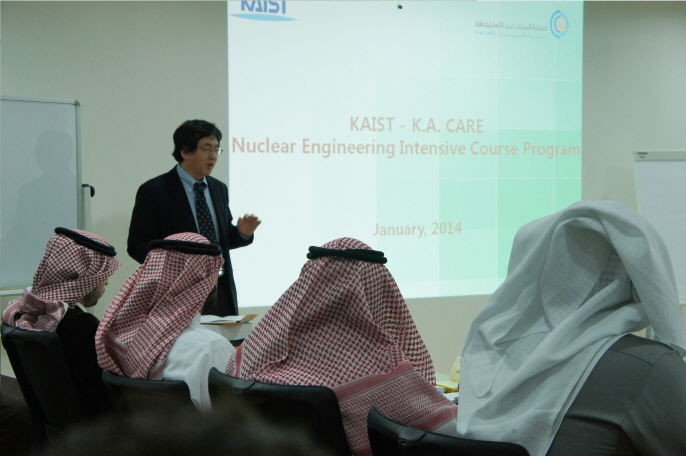 KAIST-Saudi Nuclear Workforce Training
Nuclear Engineering Intensive Course Program Held in Saudi Arabia from January 5th to 23rd
KUSTAR (The Khalifa University of Science and Technology Studies)-KAIST Institute of Education began its Nuclear Engineering Intensive Course Program on 5th January with researchers from K.A.CARE (King Abdullah City for Atomic and Renewable Energy) of Riyadh, Saudi Arabia.
This program, which was lasted until 23rd January, provided education to students on the basic technologies in the field of nuclear power.
The course involves a wide range of lectures, such as basic nuclear physics, applications using radiation, nuclear reactor design and safety, as well as nuclear power engineering.
In order to utilize the nuclear power and renewable energy, K.A.CARE was established in April 2010. The institution is also involved in the construction of nuclear infrastructure, including the site investigations, the establishment of regulatory bodies and state-owned nuclear companies, along with the newly launched workforce-training program.
The Director of the KUSTAR-KAIST Education Research Institute, Professor Soong-Heung Jang said, “This program is the beginning of long-term cooperation with Saudi Arabia. Our experience can be the basis for the construction of an extensive training program that involves many areas of nuclear engineering field.”
KAIST has been working in close cooperation with various institutions around the world, which also includes the establishment of KUSTAR-KAIST Institute of Education and Research in July 2010. KAIST is also actively cooperating with UAE Khalifa University in Middle East, sharing faculty, holding joint research programs and exchanging students.
2014.02.03 View 12554
KAIST-Saudi Nuclear Workforce Training
Nuclear Engineering Intensive Course Program Held in Saudi Arabia from January 5th to 23rd
KUSTAR (The Khalifa University of Science and Technology Studies)-KAIST Institute of Education began its Nuclear Engineering Intensive Course Program on 5th January with researchers from K.A.CARE (King Abdullah City for Atomic and Renewable Energy) of Riyadh, Saudi Arabia.
This program, which was lasted until 23rd January, provided education to students on the basic technologies in the field of nuclear power.
The course involves a wide range of lectures, such as basic nuclear physics, applications using radiation, nuclear reactor design and safety, as well as nuclear power engineering.
In order to utilize the nuclear power and renewable energy, K.A.CARE was established in April 2010. The institution is also involved in the construction of nuclear infrastructure, including the site investigations, the establishment of regulatory bodies and state-owned nuclear companies, along with the newly launched workforce-training program.
The Director of the KUSTAR-KAIST Education Research Institute, Professor Soong-Heung Jang said, “This program is the beginning of long-term cooperation with Saudi Arabia. Our experience can be the basis for the construction of an extensive training program that involves many areas of nuclear engineering field.”
KAIST has been working in close cooperation with various institutions around the world, which also includes the establishment of KUSTAR-KAIST Institute of Education and Research in July 2010. KAIST is also actively cooperating with UAE Khalifa University in Middle East, sharing faculty, holding joint research programs and exchanging students.
2014.02.03 View 12554 -
 Professor Jang Soon Heung Appointed International Consultant of the Fukushima Nuclear Disaster Task Force
The Japanese government appointed Professor Jang Soon Heung (department of Nuclear and Quantum Engineering) as the International Consultant to the Fukushima Nuclear Disaster Task Force.
Professor Hatamura Yotaro of the Tokyo University is the head of the task force and is tasked with finding out the cause and extent of damage of the disaster and minimize social cost and expansion of damage along with prevent a similar disaster from occurring.
The International Consultants will independently advise and look over the findings of the task force.
The members include: Professor Jang Soon Heung (Professor of KAIST), Richard A. Meserve (Carnegie Research Center Director/Former Chairman of Nuclear Regulatory Commission), Andre-Claude Lacoste (Chairman of French Nuclear Safety Regulatory Commission), and Lars-Eirk Holm (Secretary General of Sweden Health and Welfare).
2012.01.31 View 9757
Professor Jang Soon Heung Appointed International Consultant of the Fukushima Nuclear Disaster Task Force
The Japanese government appointed Professor Jang Soon Heung (department of Nuclear and Quantum Engineering) as the International Consultant to the Fukushima Nuclear Disaster Task Force.
Professor Hatamura Yotaro of the Tokyo University is the head of the task force and is tasked with finding out the cause and extent of damage of the disaster and minimize social cost and expansion of damage along with prevent a similar disaster from occurring.
The International Consultants will independently advise and look over the findings of the task force.
The members include: Professor Jang Soon Heung (Professor of KAIST), Richard A. Meserve (Carnegie Research Center Director/Former Chairman of Nuclear Regulatory Commission), Andre-Claude Lacoste (Chairman of French Nuclear Safety Regulatory Commission), and Lars-Eirk Holm (Secretary General of Sweden Health and Welfare).
2012.01.31 View 9757 -
 MOU on Joint Research Program with KUSTAR
KAIST has signed a MOU on Joint Research Program with KUSTAR (Khalifa, University of Science, Technology, and Research).
The Signing ceremony was held in UAE Abu Dhabi with KAIST President Seo Nam Pyo and KUSTAR Presdient Tod Laursen in attendance.
The MOU contains agreements on seed money project, exchange professors and students program, seminars and workshops, and cooperative closely through funding joint research facilities among other key agreements.
The two universities are considering joint research on educational nuclear power plant simulator, research use nuclear reactor plans and nuclear reactor for saltwater desalination plants. In addition, the field of cooperation will not be limited to nuclear power, but will be broadened to electric and electronic, mechanical engineering, aeronautical engineering, industrial engineering, construction environment, and other fields by appointing KAIST professors to perform educational cooperation programs at KUSTAR.
The cooperation is part of the agreement made by the two respective countries in the Korea export of nuclear power plants to UAE in 2009. KAIST will be helping KUSTAR to develop into a world leading science and technology based education and research institute for the next 10 years.
2011.03.25 View 14365
MOU on Joint Research Program with KUSTAR
KAIST has signed a MOU on Joint Research Program with KUSTAR (Khalifa, University of Science, Technology, and Research).
The Signing ceremony was held in UAE Abu Dhabi with KAIST President Seo Nam Pyo and KUSTAR Presdient Tod Laursen in attendance.
The MOU contains agreements on seed money project, exchange professors and students program, seminars and workshops, and cooperative closely through funding joint research facilities among other key agreements.
The two universities are considering joint research on educational nuclear power plant simulator, research use nuclear reactor plans and nuclear reactor for saltwater desalination plants. In addition, the field of cooperation will not be limited to nuclear power, but will be broadened to electric and electronic, mechanical engineering, aeronautical engineering, industrial engineering, construction environment, and other fields by appointing KAIST professors to perform educational cooperation programs at KUSTAR.
The cooperation is part of the agreement made by the two respective countries in the Korea export of nuclear power plants to UAE in 2009. KAIST will be helping KUSTAR to develop into a world leading science and technology based education and research institute for the next 10 years.
2011.03.25 View 14365 -
 International Workshop on EEWS 2010 was held.
On October 7 and 8th at Fusion Hall of KI Building, KAIST, the 2010 International Workshop on EEWS (Energy, Environment, Water, and Sustainability) was held.
The third to be held, forty national and international academic professionals including Mark Shannon, professor at University of Illinois at Urbana-Champaign, Domen Kazunari, Tokyo University professor, Dong Sub Kim, CTO of SK Energy and Doyoung Seung, Senior Vice President of GS Caltex, participated at this year’s workshop.
In twelve sessions, themes including Artificial Photosynthesis, Wireless Power Transfer, Green Aviation, Safe Nuclear Fuel Reuse, Fuel Cells in Action, LED 2.0, Foundation of Energy-Water Nexus, and Flexible Battery & Solar Cell were presented and discussed.
“Through this workshop, current EEWS policy and research progress from different countries and the future of related technologies will be foreseen,” said Jae Kyu Lee, Dean of KAIST EEWS Initiative. “I hope it became an opportunity to create cooperative relationships with leading researchers.”
EEWS is a research project conducted by KAIST to solve global issues that mankind faces today such as depletion of energy, environmental pollution, water shortage, and sustainability.
2010.10.15 View 19515
International Workshop on EEWS 2010 was held.
On October 7 and 8th at Fusion Hall of KI Building, KAIST, the 2010 International Workshop on EEWS (Energy, Environment, Water, and Sustainability) was held.
The third to be held, forty national and international academic professionals including Mark Shannon, professor at University of Illinois at Urbana-Champaign, Domen Kazunari, Tokyo University professor, Dong Sub Kim, CTO of SK Energy and Doyoung Seung, Senior Vice President of GS Caltex, participated at this year’s workshop.
In twelve sessions, themes including Artificial Photosynthesis, Wireless Power Transfer, Green Aviation, Safe Nuclear Fuel Reuse, Fuel Cells in Action, LED 2.0, Foundation of Energy-Water Nexus, and Flexible Battery & Solar Cell were presented and discussed.
“Through this workshop, current EEWS policy and research progress from different countries and the future of related technologies will be foreseen,” said Jae Kyu Lee, Dean of KAIST EEWS Initiative. “I hope it became an opportunity to create cooperative relationships with leading researchers.”
EEWS is a research project conducted by KAIST to solve global issues that mankind faces today such as depletion of energy, environmental pollution, water shortage, and sustainability.
2010.10.15 View 19515 -
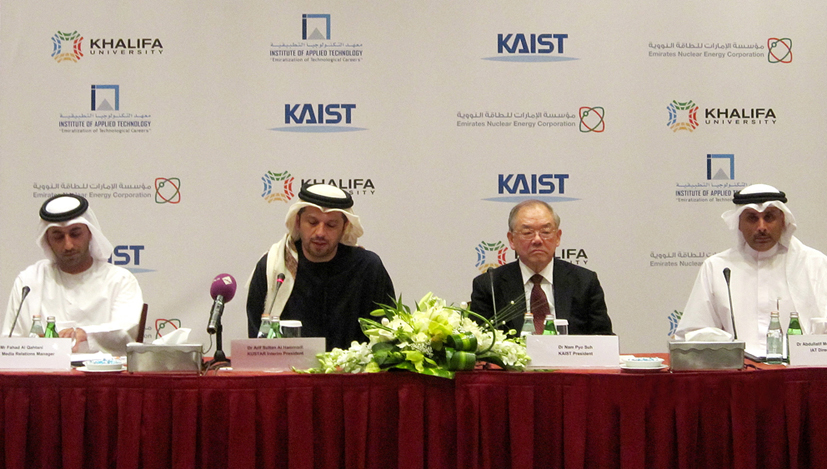 President Nam Pyo Suh of KAIST discussed cooperation with KUSTAR on the training of skilled manpower for research and development (R&D)
Representatives from Korea Advanced Institute of Science and Technology (KAIST), Khalifa University of Science, Technology and Research (KUSTAR), Emirate Nuclear Energy Corporation (ENEC), and the Institute of Applied Technology (IAT) had a meeting on mutual cooperation at the Intercontinental Hotel in Abu Dhabi, the United Arab Emirates (UAE), on January 14, 2009.
Participants of the meeting were President Nam Pyo Suh of KAIST, President Arif Sultan Al Hammadi of KUSTAR, President Mohamed Al Hammadi of ENEC, and Director General Abdullatif Mohamed Al Shamsi of IAT.
A press conference on the training of skilled manpower for research and development (R&D) in the UAE followed afterwards.
At the end of December in 2009, a Korean consortium led by Korea Electric Power Corporation (KEPCO) beat bids from its competitors to construct four nuclear power plants in the UAE. Representing the consortium, Minister Kyung Hwan Choi of Knowledge Economy Ministry signed a comprehensive agreement with KUSTAR and the Institute of Applied Technology (IAT) for the delivery of nuclear power plants.
On his visit, President Suh discussed with KUSTAR the agreement above in greater detail on subjects, where KAIST renders its cooperation, such as research collaboration, university degree program, and training to produce qualified personnel necessary for the development of UAE’s nuclear energy industry.
On research collaboration, sharing its expertise and knowledge accumulated years from the operation of academic and research programs, KAIST agreed to provide cooperation to KUSTAR in developing the latter as a leading science, technology, and research university in ten years through mutual activities such as research collaborations, recruitment and exchange of outstanding researchers and graduate students, expansion of research facilities, and creation of major research policies. Furthermore, in support of nuclear energy program in the UAE, KAIST agreed to develop a joint research program in nuclear engineering and exchange faculty members and students for research collaboration.
On a university degree program, KAIST agreed for mutual cooperation to launch academic programs at KUSTAR, covering BSc, MSc, and PhD degrees to specialize in areas such as mechanical engineering, electrical engineering, nuclear engineering, biomedical engineering, nano technology, science, and information technology. To that end, KAIST will dispatch its faculty to KUSTAR; provide assistance in developing curriculum and teaching materials; and exchange students for research collaboration.
President Arif of KUSTAR mentioned that the university will cooperate with the relevant institutions in Korea, i.e., Korea Development Institute (KDI) and the Korea Institute of Nuclear Safety (KINS), to train skilled workers required for the development of nuclear energy program in the UAE.
He also added, “These cooperative programs will introduce more educational opportunities to our students, and as a result, they can make greater contributions to the development of our nation’s future technologies in various areas. Our students will have a chance to study a broad range of academic subjects through partnership made with the Republic of Korea, and I expect to see improvements in our engineering programs by integrating KAIST’s state-of-the-art academic courses into our system.”
President Arif expressed his hope “to increase cooperation beyond the agreement made between the two countries, like allowing more exchanges and interactions with KAIST for the development of science and technology in Korea and the UAE.”
“Establishing mutual cooperation between KAIST and KUSTAR is a historic event not only for our two universities but also for our two countries. The two universities will make a great contribution to the improvement of the future of humanity by working together to solve the most important, difficult issues faced in the 21st century,” said President Suh.
He also said that “all members of KAIST community will make our utmost efforts to advance the quality of education in two schools and to implement innovative researches through mutual cooperation.”
KUSTAR, a national university in the UAE, was founded on February 13, 2007 by a mandate of the current President Shaikh Khalifa Bin Zayed Al Nahyan to create a higher education institute.
KUSTAR has been building its permanent campus in Abu Dhabi, the capital of UAE since establishment and merged with the campus in Sharjah (formerly known as Etisalat University College with 18 years of history) in 2008. The University offers education and research programs in five disciplines of engineering, logistics and management, health science, homeland security, and applied science.
There are more or less 30 foreign accredited universities set up in the UAE from countries like the US, UK, Australia, France, Ireland, and Canada. Examples of such, among other things, are New York University Abu Dhabi campus and Middlesex University Dubai campus.
Many of the foreign universities in the UAE, however, have colleges of pharmacy, computer science, aviation, management information, fashion design, business management, and medical science including Harvard Medical School Dubai Center, but not many in science and research. Therefore, KAIST’s assistance in KUSTAR’s endeavor to become a leading science and research university in the UAE is timely. The current government of UAE anticipates, with a great interest, to see a leading science and research intuition built in their nation.
Attachment: Current Status of Universities in the UAE as of 2009
Background Information
The United Arab Emirates (UAE) is a federation of seven emirates (Abu Dhabi, Dubai, Sharjah, Ajman, Umm al-Quwain, Ras al-Khaimah, and Fujairah) situated on the Arabian Peninsula, which borders with Oman and Saudi Arabia.
The UAE has the world"s sixth largest oil reserves. As of 2008, its gross domestic product is $2,621,000.5 million and its nominal per capita gross domestic product is $5 5,028, becoming one of the most developed economies in the Middle East. The UAE’s total population as of the said year is 4,760.4 thousand, and its purchasing power per capita is 40th largest in the world. The UAE’s Human Development Index for Asian continent is relatively high, ranking 31st globally.
In 1985, the UAE launched its own airline, Emirates Airline, which has become one of the fastest growing airlines in the world. The Emirates Airline is a sponsor for Arsenal soccer club.
The Republic of Korea established full diplomatic relations with the UAE in June of 1980. On December 27, 2009, a Korean consortium led by Korea Electrical Power Corporation (KEPCO) signed a contract with the UAE to build nuclear power plants.
2010.01.15 View 19181
President Nam Pyo Suh of KAIST discussed cooperation with KUSTAR on the training of skilled manpower for research and development (R&D)
Representatives from Korea Advanced Institute of Science and Technology (KAIST), Khalifa University of Science, Technology and Research (KUSTAR), Emirate Nuclear Energy Corporation (ENEC), and the Institute of Applied Technology (IAT) had a meeting on mutual cooperation at the Intercontinental Hotel in Abu Dhabi, the United Arab Emirates (UAE), on January 14, 2009.
Participants of the meeting were President Nam Pyo Suh of KAIST, President Arif Sultan Al Hammadi of KUSTAR, President Mohamed Al Hammadi of ENEC, and Director General Abdullatif Mohamed Al Shamsi of IAT.
A press conference on the training of skilled manpower for research and development (R&D) in the UAE followed afterwards.
At the end of December in 2009, a Korean consortium led by Korea Electric Power Corporation (KEPCO) beat bids from its competitors to construct four nuclear power plants in the UAE. Representing the consortium, Minister Kyung Hwan Choi of Knowledge Economy Ministry signed a comprehensive agreement with KUSTAR and the Institute of Applied Technology (IAT) for the delivery of nuclear power plants.
On his visit, President Suh discussed with KUSTAR the agreement above in greater detail on subjects, where KAIST renders its cooperation, such as research collaboration, university degree program, and training to produce qualified personnel necessary for the development of UAE’s nuclear energy industry.
On research collaboration, sharing its expertise and knowledge accumulated years from the operation of academic and research programs, KAIST agreed to provide cooperation to KUSTAR in developing the latter as a leading science, technology, and research university in ten years through mutual activities such as research collaborations, recruitment and exchange of outstanding researchers and graduate students, expansion of research facilities, and creation of major research policies. Furthermore, in support of nuclear energy program in the UAE, KAIST agreed to develop a joint research program in nuclear engineering and exchange faculty members and students for research collaboration.
On a university degree program, KAIST agreed for mutual cooperation to launch academic programs at KUSTAR, covering BSc, MSc, and PhD degrees to specialize in areas such as mechanical engineering, electrical engineering, nuclear engineering, biomedical engineering, nano technology, science, and information technology. To that end, KAIST will dispatch its faculty to KUSTAR; provide assistance in developing curriculum and teaching materials; and exchange students for research collaboration.
President Arif of KUSTAR mentioned that the university will cooperate with the relevant institutions in Korea, i.e., Korea Development Institute (KDI) and the Korea Institute of Nuclear Safety (KINS), to train skilled workers required for the development of nuclear energy program in the UAE.
He also added, “These cooperative programs will introduce more educational opportunities to our students, and as a result, they can make greater contributions to the development of our nation’s future technologies in various areas. Our students will have a chance to study a broad range of academic subjects through partnership made with the Republic of Korea, and I expect to see improvements in our engineering programs by integrating KAIST’s state-of-the-art academic courses into our system.”
President Arif expressed his hope “to increase cooperation beyond the agreement made between the two countries, like allowing more exchanges and interactions with KAIST for the development of science and technology in Korea and the UAE.”
“Establishing mutual cooperation between KAIST and KUSTAR is a historic event not only for our two universities but also for our two countries. The two universities will make a great contribution to the improvement of the future of humanity by working together to solve the most important, difficult issues faced in the 21st century,” said President Suh.
He also said that “all members of KAIST community will make our utmost efforts to advance the quality of education in two schools and to implement innovative researches through mutual cooperation.”
KUSTAR, a national university in the UAE, was founded on February 13, 2007 by a mandate of the current President Shaikh Khalifa Bin Zayed Al Nahyan to create a higher education institute.
KUSTAR has been building its permanent campus in Abu Dhabi, the capital of UAE since establishment and merged with the campus in Sharjah (formerly known as Etisalat University College with 18 years of history) in 2008. The University offers education and research programs in five disciplines of engineering, logistics and management, health science, homeland security, and applied science.
There are more or less 30 foreign accredited universities set up in the UAE from countries like the US, UK, Australia, France, Ireland, and Canada. Examples of such, among other things, are New York University Abu Dhabi campus and Middlesex University Dubai campus.
Many of the foreign universities in the UAE, however, have colleges of pharmacy, computer science, aviation, management information, fashion design, business management, and medical science including Harvard Medical School Dubai Center, but not many in science and research. Therefore, KAIST’s assistance in KUSTAR’s endeavor to become a leading science and research university in the UAE is timely. The current government of UAE anticipates, with a great interest, to see a leading science and research intuition built in their nation.
Attachment: Current Status of Universities in the UAE as of 2009
Background Information
The United Arab Emirates (UAE) is a federation of seven emirates (Abu Dhabi, Dubai, Sharjah, Ajman, Umm al-Quwain, Ras al-Khaimah, and Fujairah) situated on the Arabian Peninsula, which borders with Oman and Saudi Arabia.
The UAE has the world"s sixth largest oil reserves. As of 2008, its gross domestic product is $2,621,000.5 million and its nominal per capita gross domestic product is $5 5,028, becoming one of the most developed economies in the Middle East. The UAE’s total population as of the said year is 4,760.4 thousand, and its purchasing power per capita is 40th largest in the world. The UAE’s Human Development Index for Asian continent is relatively high, ranking 31st globally.
In 1985, the UAE launched its own airline, Emirates Airline, which has become one of the fastest growing airlines in the world. The Emirates Airline is a sponsor for Arsenal soccer club.
The Republic of Korea established full diplomatic relations with the UAE in June of 1980. On December 27, 2009, a Korean consortium led by Korea Electrical Power Corporation (KEPCO) signed a contract with the UAE to build nuclear power plants.
2010.01.15 View 19181